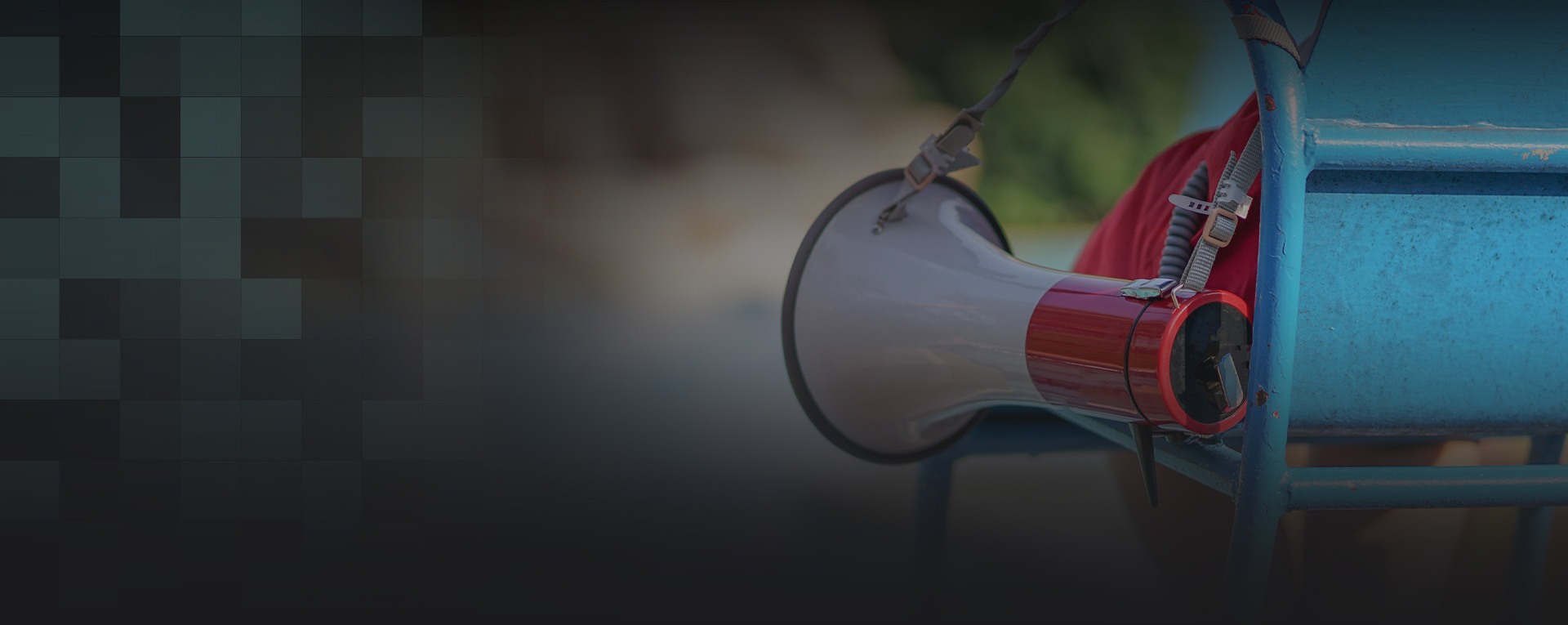
San Antonio Swimming Pool Accident Attorney
Helping Victims Pursue Justice in Swimming Pool Injury Claims
Swimming pools are a common feature of many properties in San Antonio, offering residents and visitors a respite from the hot Texas sun. However, these recreational areas can also pose significant risks, especially when property owners fail to maintain them properly or neglect safety precautions.
If you or a loved one has been injured in a swimming pool accident in San Antonio, don't wait to seek legal representation. At The Doan Law Firm, PLLC, we understand the physical, emotional, and financial toll they can take on individuals and families.
Our dedicated team is here to provide compassionate support and aggressive representation to ensure you receive the compensation and justice you deserve. We will review your case, explain your legal rights and options, and help you understand the best course of action moving forward.
Call The Doan Law Firm, PLLC today at (800) 349-0000 or contact us online to schedule a meeting with our swimming pool accident attorney in San Antonio!
Pool Safety Laws in Texas
Residential Pools
Residential pools, typically serving single-family homes, are primarily regulated by local ordinances. However, general state guidelines include:
- Fencing Requirements: Pools deeper than 24 inches must be enclosed by a fence at least 48 inches high. The fence should not have gaps or openings that allow a sphere 4 inches in diameter to pass through. Climbable materials, like chain link fences, are discouraged.
- Gates: Access gates must be self-closing, self-latching, and open outward, away from the pool. Latches should be positioned at least 60 inches above the ground or meet specific safety criteria if placed lower.
- Doors and Windows: Doors leading directly to the pool area should have keyless bolting devices located at least 36 inches above the ground. Windows providing access to the pool may need to be permanently sealed or equipped with safety features.
Keep in mind that homeowners should also consult local building codes and homeowners association (HOA) regulations, as they may impose additional requirements.
Commercial Pools (e.g., Hotels, Apartments)
Commercial pools, such as those in hotels or apartment complexes, are subject to stricter regulations:
- Enclosure Standards: Pools must be completely enclosed with a fence at least 48 inches high, adhering to specific construction standards to prevent unauthorized access.
- Gates: Gates must be self-closing, self-latching, and open outward. Latches should be installed at a minimum height of 60 inches or meet alternative safety specifications.
- Safety Equipment: Pools are required to have safety features such as ring buoys with throwing ropes and reaching poles, with quantities based on the pool's surface area.
- Signage: Appropriate signage, including "No Lifeguard on Duty," "No Diving," and emergency contact information, must be displayed with specified lettering sizes.
Public Pools
Public pools, accessible to the general public, are regulated by the Texas Department of State Health Services (DSHS) under the Texas Administrative Code, Title 25, Chapter 265. Key requirements include:
- Construction and Maintenance: Pools must meet specific design and construction standards and be maintained to ensure safety and sanitation.
- Safety Features: Public pools are required to have safety equipment similar to commercial pools, including ring buoys and reaching poles.
- Operational Standards: Operators must ensure proper water quality, maintain equipment in good repair, and keep surrounding areas clean and safe.
- Signage: Mandatory signs must be posted, including rules for pool use, emergency contact information, and warnings about the absence of lifeguards when applicable.
Common Types of Swimming Pool Accidents
A swimming pool accident is any incident resulting in injury, property damage, or loss of life occurring in or around a swimming pool. These accidents can happen in various settings, including private residences, public pools, water parks, and recreational facilities. They can occur due to a range of factors, including negligence, lack of supervision, equipment failure, or unsafe premises.
Common types of swimming pool accidents include:
- Drowning: Drowning is the most severe consequence of a swimming pool accident and typically occurs when a person is submerged underwater and unable to breathe. It can happen quickly and silently, especially with young children who may not be strong swimmers.
- Near-Drowning refers to instances where a person survives after being submerged underwater for some time. While the individual may survive the initial incident, near-drowning can lead to serious health complications, including brain damage, respiratory issues, and neurological impairment.
- Slip and Fall Accidents: Slip and fall accidents are common around swimming pools due to wet surfaces, slippery tiles, or inadequate drainage. These accidents can result in injuries such as broken bones, sprains, strains, or head trauma.
- Diving Accidents: Diving accidents occur when individuals dive into shallow water or collide with objects such as pool walls, diving boards, or other swimmers. These accidents can cause head, neck, or spinal cord injuries, which may result in permanent disability or paralysis.
- Entrapment: Entrapment occurs when a person becomes trapped or entangled in pool drains, suction outlets, or other equipment. This can lead to drowning, near drowning, or severe injuries, particularly if the victim is unable to free themselves from the entrapment.
- Electrocution: Electrocution accidents can occur in swimming pools with faulty or improperly maintained electrical systems. Electrical currents can be conducted through the water, posing a risk of shock or electrocution to swimmers and nearby individuals.
- Chemical Exposure: Improperly balanced pool chemicals can cause skin irritation, respiratory problems, or chemical burns in swimmers. Excess chlorine or other disinfectants can also lead to allergic reactions or adverse health effects.
- Inadequate Supervision: Lack of supervision, especially in settings where children are present, can increase the risk of swimming pool accidents. Without proper oversight, individuals may engage in risky behavior or find themselves in dangerous situations, such as wandering deep water or attempting unsafe activities.
Who is Liable for a Swimming Pool Accident?
Multiple parties may potentially be held liable for a swimming pool accident, including:
- Property Owners: Property owners have a legal duty to maintain their premises safely, including swimming pool areas. If a swimming pool accident occurs due to negligent maintenance, lack of safety measures, or failure to comply with building codes or regulations, the property owner may be liable for injuries or damages.
- Pool Operators: When swimming pools are operated by entities such as homeowners' associations, recreation centers, or commercial establishments, the operators may be held responsible for ensuring the safety of the premises. This includes implementing proper safety protocols, providing adequate supervision, and addressing any hazards or risks in the pool area.
- Maintenance Companies: If a swimming pool accident occurs due to inadequate maintenance or negligent repairs performed by a maintenance company hired by the property owner or operator, the company may be liable for injuries or damages.
- Equipment Manufacturers: If a swimming pool accident is caused by defective pool equipment, such as faulty diving boards, ladders, drains, or filtration systems, the manufacturer of the defective equipment may be held liable under product liability laws.
- Contractors and Builders: In cases where swimming pool accidents result from design defects, construction errors, or improper installation of pool components, the contractors or builders responsible for constructing or renovating the pool may be liable for injuries or damages.
- Swimmers or Visitors: In some situations, swimmers or visitors who engage in reckless or negligent behavior contributing to a swimming pool accident may be held partially liable for their injuries. However, this does not absolve property owners or operators of their duty to maintain a safe environment and provide adequate warnings or safeguards against foreseeable risks.
- Parents or Guardians: Parents or guardians may be held liable for swimming pool accidents involving their children if they fail to provide proper supervision or take reasonable precautions to prevent injuries, especially in cases involving young children.
Determining liability in a swimming pool accident requires a thorough investigation of the incident's circumstances, including gathering evidence, assessing compliance with safety regulations, and evaluating the actions or omissions of all parties involved. An experienced personal injury attorney can help victims of swimming pool accidents navigate the legal process, identify liable parties, and pursue compensation for their injuries, medical expenses, and other damages.
Understanding the Long-Term Impacts of Swimming Pool Accidents
Injuries sustained in swimming pool accidents can have lasting effects on victims and their families. The physical and emotional toll of these incidents may extend far beyond the initial injury, requiring ongoing medical treatment, rehabilitation, and emotional support. Common long-term impacts include:
- Chronic Pain: Many victims may experience chronic pain that affects their daily lives, often requiring long-term management strategies and therapies.
- Psychological Trauma: The traumatic experience of a swimming pool accident can lead to anxiety, depression, or post-traumatic stress disorder (PTSD). Victims may develop an aversion to water or swimming, which can impact their quality of life and recreational activities.
- Financial Strain: The costs associated with medical treatment, rehabilitation, and potential loss of income due to the inability to work can create significant financial burdens for victims and their families.
Understanding these potential long-term impacts is essential for victims pursuing compensation, as they may need to account for ongoing medical expenses, therapy costs, and loss of quality of life when seeking damages.
Why Choose Us?
When choosing a legal representation, you deserve a law firm that is dedicated, experienced, and committed to achieving the best possible outcome for you. Here are a few reasons why you should choose The Doan Law Firm, PLLC:
- Experience: With years of experience handling personal injury cases, including swimming pool accidents, our attorneys have the knowledge, skills, and resources to advocate for you effectively.
- Track Record of Success: We have a proven track record of securing favorable client outcomes, including numerous substantial settlements and verdicts.
- Personalized Attention: At The Doan Law Firm, PLLC, we understand that every case is unique. We provide personalized attention and tailored legal strategies to meet your specific needs and goals.
- Compassionate Advocacy: We genuinely care about our client's well-being and are committed to providing compassionate support and guidance during a challenging and stressful time.
- No Fee Unless We Win: We understand the financial strain that a swimming pool accident can place on you and your family, so we work on a contingency fee basis. You don't pay us anything unless we successfully recover compensation on your behalf.
Contact Our San Antonio Swimming Pool Accident Lawyer Today
If you or a loved one has been injured in a swimming pool accident in San Antonio, seeking legal representation is crucial to ensure your rights are protected and to pursue the compensation you deserve. At The Doan Law Firm, PLLC, our team is dedicated to helping victims navigate the complexities of personal injury claims while providing compassionate support throughout the process. We understand the physical, emotional, and financial challenges that accompany such incidents and are committed to advocating for your best interests. Don’t hesitate to reach out to us for a consultation to discuss your case and explore your legal options. Your recovery is our priority, and we are here to fight for the justice you deserve.
Contact The Doan Law Firm, PLLC today to schedule a meeting with our swimming pool accident lawyer in San Antonio!


-
 Hear From Our Clients
Hear From Our Clients -
 Get To Know Us
Get To Know Us -
 Client Successes
Client Successes -
 Stay In The Know
Stay In The Know






